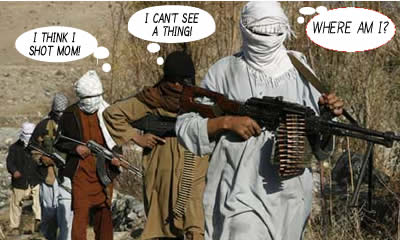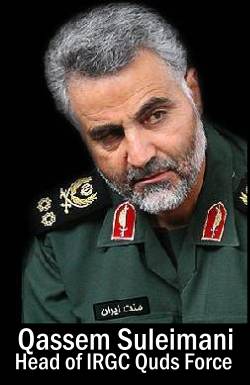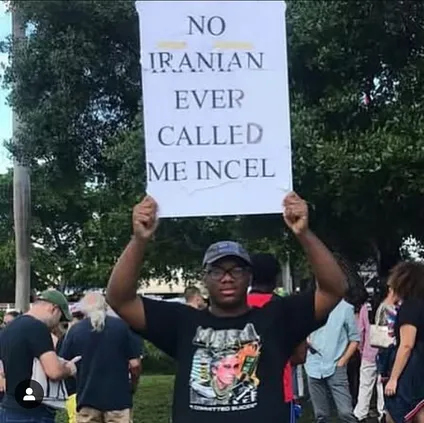Direct Translation via Google Translate. Edited.
by Kirill Novikov
[REGNUM] 75 years ago, on June 25, 1950, the administration of US President Harry Truman brought the "Korean question" to the UN Security Council for discussion. At the same time, more than 8,000 kilometers from Washington, units of the Korean People's Army crossed the demarcation line that the US and USSR had drawn along the 38th parallel.
The Korean War began, which lasted three years and is formally still ongoing.
The conflict, which cost the lives of 9 million Koreans (80% of them civilians), is often called a civil war. In form, it was, at least until the direct intervention of the "UN troops", that is, the US and its allies, and until the arrival of the million-strong corps of "Chinese People's Volunteers".
Moreover, the war developed according to the plot of the American Civil War: North versus South.
But in fact, less than five years after the end of World War II, the planet was closer than ever to the start of World War III.
The recent allies, the Soviet Union and the United States, were on the brink of direct conflict.
Thanks to the help of the USSR and the intervention of China, the war was "slowed down" and stopped. But the conflict could not have matured without the participation of another great power - the United States.
This is worth remembering now, when the will of the Americans determines whether a war in another corner of Asia will flare up to a global level or stop.
| Translation: Our side can start all the trouble it wants, but it only becomes a war when America chooses to fight back. |
BURIED DISCHARGE
In January 1951, when the war on the peninsula was at its height, Pablo Picasso unveiled his painting Massacre in Korea in Paris. This expressionist painting is not as well known as Guernica, but it is executed in the same manner and serves as a “continuation” of the famous 1937 painting.
The scene of the Americans shooting peaceful Korean women and children is depicted in the same way as the aftermath of the bombing of the Spanish city of Guernica by the Luftwaffe Condor Legion. The artist equated the soldiers of the "UN peacekeeping corps" with the Nazis - and Picasso was not the only one who thought so.
| I’m fairly ignorant about art history. Until just now I didn’t realize exactly how much of a posturing ass Mr. Picasso was. |
But how did it happen that the recent liberators of Western Europe turned out to be punishers?
In the final stages of World War II, Franklin Delano Roosevelt (who died in April 1945) was determined to achieve a lasting peace with the USSR. The American leader believed that involving “Red Russia” in the establishment of a new post-war order would reduce the likelihood of confrontation with Western countries. Addressing Congress in March 1945, the already seriously ill president noted that after victory, the world order could not be based on the dominance of “one man, one party, or one nation”; all countries needed to move away from the policy of confrontation and unite for joint creation.
In essence, Roosevelt formulated the principles of “international détente” – this rhetoric would be used by both Republicans and Democrats – from John F. Kennedy and Richard Nixon to Barack Obama and Donald Trump. But in 1944-45, it was not just about rhetoric. At this stage, Washington organized the Lend-Lease program for its Soviet ally. At the Yalta Conference, Roosevelt “removed” the Polish question by agreeing to recognize the Curzon Line as the border between the Soviet Union and Poland. In return, the USSR took part in the UN and even signed the Bretton Woods Agreement in 1944, which abolished the gold standard and recognized the dollar as the international currency of account.
Roosevelt's line still looks optimal: while conceding on points that were insignificant for American national interests, he sought to reach an agreement with Joseph Stalin on the USSR's participation in international settlement institutions. In our time, this policy of building bridges is consistently pursued by Moscow (demonstrating a readiness for dialogue with Washington) and is very inconsistently pursued by the Trump administration.
| Oh dear. That poor writer sprained his wrist patting himself on the back… |
But back then, in the late 1940s, "détente" was buried by Roosevelt's death.
Truman had already called on Congress in March 1947 to allocate funds to fight communist Russia. The formal pretext was the creation of a buffer zone in Eastern Europe by the Soviet Union.
CLAWS OF THE "HAWKS"
There was a strong isolationist sentiment among the ruling Republicans then, as now, but, as now, the tone is set by the "hawks" with a fixation on a power foreign policy.
Senator Arthur Vandenberg pushed through both houses of Congress, convincing them to approve the Truman Doctrine and vote on spending to counter the Red threat. And soon an opportunity arose to load the American military-industrial complex with military orders - although it "flared up" not in Central Europe (the first Berlin crisis of 1948-49 was the lightning bolt of which), but in the Far East.
In the autumn of 1945, the victorious powers, the USSR and the USA, divided Korea, liberated from Japanese colonial rule, into two occupation zones. This regime was supposed to last for 5 years, after which it was supposed to recreate a single state (as happened with Austria). But the plans were thwarted by the onset of the Cold War.
On September 7, 1945, General Douglas MacArthur issued Proclamation No. 1, which declared the introduction of a military dictatorship. Disobedience to the administration was punishable by death, and English was declared the official language of the occupation zone.
According to contemporaries, the pace and progress of reconstruction in the Soviet zone (and the way these successes were presented by propaganda) inspired greater optimism at the time, which provoked the growth of leftist sentiments in the South, including in the middle class. Understanding that reliance on big business and landlords alone was not enough to build a pro-Western democracy, Truman relied on a “strong hand.” Dr. Syngman Rhee, brought from exile on MacArthur’s personal plane and elected president of the Republic of Korea in 1948, became the first in a series of Seoul-based pro-American dictators.
The following year, 1949, when Mao Zedong emerged victorious from the Chinese Civil War, the Truman administration faced a barrage of criticism from the right, with hawks accusing the White House of weakness. In order not to lose the Korean Peninsula after mainland China, the United States stepped up support for its partners in Seoul.
INEVITABLE COLLISION
In June 1949 alone, the Americans transferred to their ally 50,000 carbines with ammunition, 2,000 rocket launchers, 40,000 vehicles, light guns and mortars, 70,000 shells for a total of $5.6 million. That's almost $76 million in today's dollars.
And this helped to increase the total number of personnel in the security forces of the South to 104 thousand people.
In January 1950, the United States signed an agreement with Seoul, according to which its army received 140 thousand rifles (40 thousand Japanese), 2 thousand anti-tank bazookas, a large number of artillery pieces, tanks and aircraft, and 4,900 vehicles.
The "Korean Military Advisory Group," made up of American officers, conducted training courses for South Korean soldiers and provided them with technical and material support.
In total, the US spent $190 million, or $2.5 billion in today's money, adjusted for inflation, on arming the South Koreans in 1949. And in March 1950, Congress appropriated another $100 million (or $1.33 billion in today's dollars) to "provide military and other assistance to the Republic of Korea."
After the start of the war and until 1953, the Americans invested 1.17 billion dollars at the time, or 15 billion today, in rearmament and other assistance to their South Korean wards.
To compare the scale, according to the Pentagon, from 2014 to 2022 the US allocated 2.7 billion in military aid to Ukraine. After the start of the Second World War, the pumping increased several times, by another 66.5 billion dollars, according to official data from the State Department.
The logic of the Cold War dictated the need for a mirror response from the USSR and North Korea.
| Given that the USSR started it, mirror is not quite the right word. |
Since 1949, the leader of the DPRK, Kim Il Sung, had been asking Stalin to support the Korean People's Army's (KPA) march to the South, insisting that once the war began, the South Koreans themselves would overthrow the puppet pro-American regime. Politically, Moscow held back its allies, but at the same time, Soviet military aid to the North Koreans was in full swing. A clash became inevitable.
INTERVENTION OF "PEACEKEEPERS"
Early in the morning of June 25, a 175,000-strong KPA force, supported by 172 combat aircraft and 150 T-34 tanks, crossed the border. South Korean historiography generally believes that the North attacked first. Pyongyang, however, points out that the start of the war was preceded by numerous (up to several thousand in recent months) armed provocations from the South.
Be that as it may, on June 26 the United States entered the war.
Truman, without seeking congressional approval, appealed to the UN, which gave the go-ahead for the so-called police action in Korea. The USSR boycotted the Security Council sessions, demanding that communist China be included instead of Taiwan. Thus, in September 1950, the only armed intervention of its kind by the "UN peacekeepers" began - the USA and its allies, including those in the newly formed NATO (Britain and Turkey played a real role), launched a frontal attack on Kim Il Sung's troops.
At that time, Democrat Truman, like Democrat Joe Biden now, was harshly criticized by some Republicans for interfering in a war on the other side of the world. In particular, by former President Herbert Hoover and influential Ohio Senator Robert Taft, son of President William Taft. The same Taft Jr., by the way, harshly criticized US participation in NATO, like today's isolationist Trumpists.
But the decisive “yes” to the war was said by the American military-industrial complex.
If, on the occasion of the end of World War II, Truman cut the defense budget to $13.5 billion, then in December 1950 the same president gave the Pentagon $50 billion. Translated into today's money, this is $667 billion - more than the military department had in the mid-2010s, but less than now (at the moment, the Pentagon has $886 billion).
During the Korean War, "civilian" business in America was going through hard times - the White House raised corporate and income taxes, and credit conditions were tightened. But defense contracts brought huge profits to companies such as Lockheed, Northrop, and Boeing, and they were able to increase the defense budget to 15% of GDP in 1952.
DANGEROUS LEGACY
During 1950, the US became increasingly involved in the war, to a degree not comparable to its current involvement in the Ukrainian or Middle Eastern conflicts. It seemed that the “UN troops” were winning – Pyongyang had been taken, the North’s army was pressed to the Chinese border.
After the arrival of the "Chinese volunteers" and the turning point in the war, Commander MacArthur advocated maximum escalation - bombing China, an invasion of the Kuomintang from Taiwan and, if necessary, atomic bombings. At that time, the PRC did not yet have a nuclear arsenal (as Iran does now), and by 1951 our country already had 15 RDS-1 bombs at its disposal.
Truman had the good sense to back down after the conflict had been brought to the brink of World War III. MacArthur's proposals were shelved, and in April 1951 he was removed from command altogether.
The US intervention in a conflict in another part of the world began under a Democratic president, and the US was withdrawn from the war and the conflict itself was ended by a Republican president.
Dwight Eisenhower did what Donald Trump would probably like to achieve: in 1953, the Korean War ended in a military draw on terms acceptable to the United States. The US-dependent South Korean regime was preserved, the front line slowed down at the same 38th parallel, turning into one of the most closed and guarded borders in the world.
The Cold War did not develop into a nuclear Armageddon, which can also be considered a happy ending.
But it was after the Korean conflict that US policy began to mutate in a dangerous direction.
America finally consolidated its role as the only superpower of the “free world” and “guarantor of democracy.” Since the mid-1950s, the role of the military-industrial complex (and this term itself appeared at that time) as one of the locomotives of the American economy has sharply increased, and the connections between the Pentagon, the defense industry, and lobbyists of Boeing, Lockheed Martin, and General Electric in Congress that still exist today were formed. Since that moment, military spending has rarely fallen below 10-12% of GDP.
The Korean War was the first in a series of local wars that the United States fought in the Eastern Hemisphere. Vietnam, the invasions of Afghanistan and Iraq were only logical continuations.
Now, when America is struggling to get rid of “aid” to Kiev and is balancing on the brink of yet another “export of democracy,” this time to Iran,
| …no need for that. The Iranians know how to do democracy as they’ve been going through the motions for several generations, should they exert themselves to either drive out the Mullahcracy in bloody revolution or more slowly evolve in a less totalitarian direction… |
it is more obvious than ever that the United States will be able to return to the Monroe Doctrine, limit itself to the affairs of the Western Hemisphere, or focus on domestic affairs, if it succeeds, only with great difficulty.
|
 ...the once and current oppressors of Afghanistan...
...the once and current oppressors of Afghanistan...
 These aircraft showed excellent performance in combat (in combination with Chinese long-range air-to-air missiles PL-15) during the last Indo-Pakistani war, when they outperformed the French Rafales.
These aircraft showed excellent performance in combat (in combination with Chinese long-range air-to-air missiles PL-15) during the last Indo-Pakistani war, when they outperformed the French Rafales. 
 ...a theocratic Shiite state divided among the Medes, the Persians, and the (Arab) Elamites. Formerly a fairly civilized nation ruled by a Shah, it became a victim of Islamic revolution in 1979. The nation is today noted for
...a theocratic Shiite state divided among the Medes, the Persians, and the (Arab) Elamites. Formerly a fairly civilized nation ruled by a Shah, it became a victim of Islamic revolution in 1979. The nation is today noted for 




